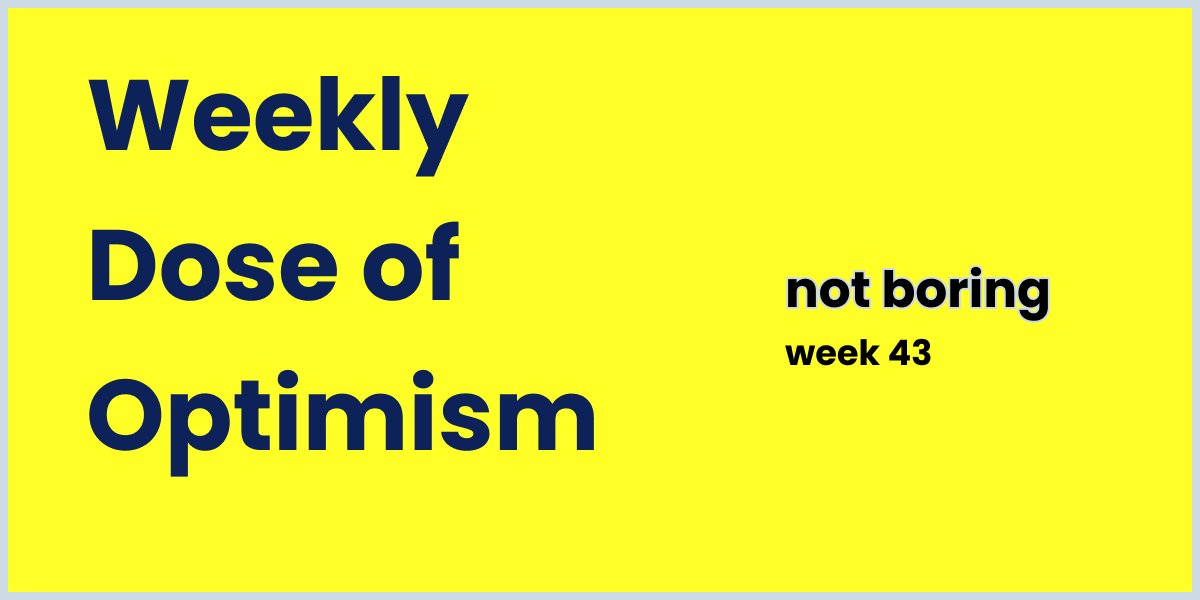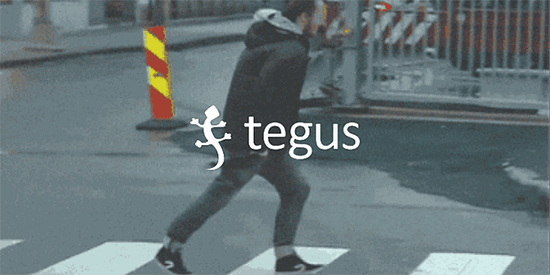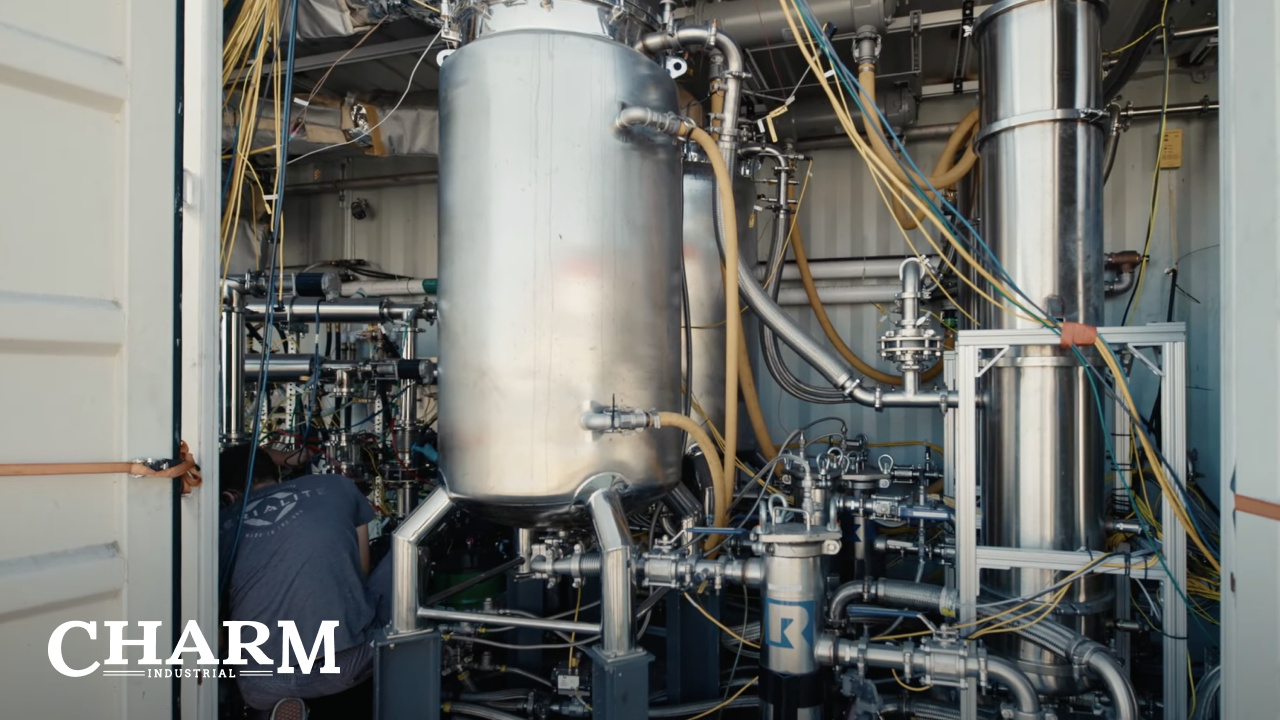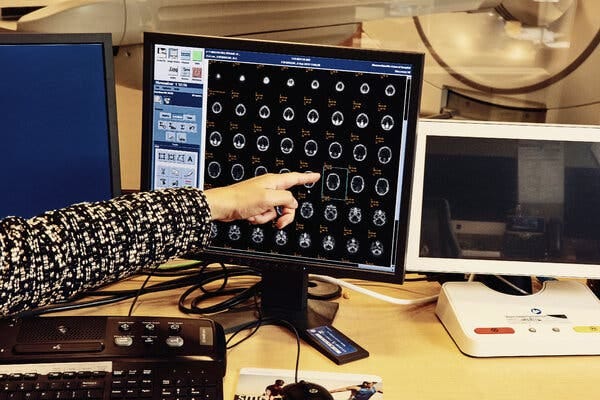Not Boring by Packy McCormick - Weekly Dose of Optimism #43
Weekly Dose of Optimism #43Frontier, Seaflooding, Alzheimer's Mutations, Reversing Brain Signals, Space CellsHi friends 👋, Happy Friday and welcome back to our 43rd Weekly Dose of Optimism. We got Advance Market Commitments putting their money where their mouth is, novel approaches to fighting climate change, promising brain research on both Alzheimer’s and major depressive disorder, and some space cells. Big week. Let’s get to it. Today’s Not Boring is brought to you by…Tegus Overcome market headwinds with fast, accurate, and cost-effective expertise. Tegus is the affordable centralized research platform for at-cost expert calls, the largest and fastest growing expert transcript library of public and private market data, and most robust benchmarking, charting and comps tooling. With Tegus you can spend less time collecting and connecting disparate data and start maximizing what sets you apart – your unique synthesis and decision making. Ready to unlock the power of Tegus? Trial the benefits for free now below: 1) Frontier buyers sign first $53M in offtake agreements with Charm Industrial From Frontier
We’ve written about Frontier, the advance market commitment (AMC) from Stripe, Alphabet, Shopify, Meta, and McKinsey a few times since it was first announced. Frontier is most notable for two reasons: 1) its focus on carbon removal and 2) its “advance commitment” structure, which reflects a “if you fund it, they will come” philosophy. On Thursday, Frontier announced its first actual carbon offtake agreement with with Charm Industrial, totaling $53M. Charm, which is led by former Segment founder and CEO Peter Reinhardt, has a unique approach to carbon removal. Charm Industrial converts biomass into a stable, carbon-rich liquid and then pumps it deep underground, where it is stored permanently. This is likely the first of many similar Frontier projects, as the AMC has committed over $1B to fund carbon removal projects. It currently has 16 organizations in its portfolio that are taking novel approaches to carbon capture and removal. (2) Seaflooding Tomas Pueyo for Unchartered Territories (h/t @TamarHaspel)
While Frontier funds carbon removal projects, even more creative solutions to climate change are being proposed — like this one, dubbed “Seaflooding” from Tomas Pueyo. The general idea of Seaflooding is to flood sub sea-level areas with water turning vast deserts into flourishing (and energy producing) ecosystems. The top two candidates for such Seaflooding, according to Pueyo, are the Dead Sea and the Qattara Depression. Here’s generally how it would work:
It’s tough to comprehend the scale, complexity, and timelines of a project like this, and frankly we’re not in a position to cast judgement on its feasibility. But, at face-value, it seems like an idea that, if properly executed, could both a) generate a cheap electricity and b) transform deserts into vibrant sealine communities. (3) Mutation Protected Man From Alzheimer’s Disease, Hinting at Treatment Gina Kolata for The New York Times
This story, from the NYT, is based on a new research paper published in Nature earlier this week. The paper investigates the unique story of a man who, according to all biomarkers, should have developed the symptoms of Alzheimer’s in his early 40s but did not show signs of the disease until he was well into his 60s. The development of his Alzheimer’s, which itself is caused by a gene mutation, was stunted by a separate gene mutation which blocked the disease from entering his entorhinal cortex. The finding is important because if a drug could accomplish what this mutation did, it could delay the onset of Alzheimer’s for years and even decades. Animal studies are already underway, but FDA approved drugs are likely years away. This is, of course, just one approach to delaying or curing Alzheimer’s — but we’re encouraged by the number of promising Alzheimer’s treatments coming out in just the last couple of years. (4) Researchers treat depression by reversing brain signals traveling the wrong way Nina Bai for Stanford Medicine News Center
Transcranial Magnetic Stimulation (TMS) has been used to treat major depressive disorder since the late 1990’s, but researchers have just now discovered how exactly is works. New research from Stanford indicates that TMS works by works by reversing abnormal brain signals. The research found that the flow of activity between the anterior insula and the anterior cingulate cortex is reversed, and this reversed flow correlates with the severity of depression. This is an important finding for two reasons:
Generally TMS is a non-invasive and safe alternative treatment method for patients that have not taken to medicine or psychotherapy. (5) Is space the place for stem cell manufacturing? Scientists will soon test that on the ISS Helen Floersh for Fierce Biotech
The most interesting stuff happens at the intersections. In this case, the intersection of space and biotech. There’s already evidence that microgravity might be an ideal growing ground for stem cells, and this mission is meant to give a team of medical researchers a real-life 5 day view if that’s truly the case. Of course, a mission like this is, at least in part, due to that drastic decrease in launch costs brought on by SpaceX that makes a whole slew of new space endeavors possible. Stem cells are particularly interesting because they can be reprogrammed into any type of cell. But a whole slew of chemical and drug development projects could benefit from the unique characteristics of space. This idea, that manufacturing in microgravity is now both possible and advantageous, is the core insight behind Not Boring Capital portfolio company Varda. You’ll be hearing more about them soon. Space drugs. Woah man. BONUS: Not Boring Biotech Partner, Elliot Hershberg, is attending and speaking at the SynBioBeta Conference from May 23 - May 26th in Oakland, CA. SynBioBeta is the largest synbio conference of the year and a great opportunity to learn from and meet many of the leading researchers, operators, and investors in synbio today. Prior to the conference, on May 21st, Not Boring is hosting an event with Fifty Years called “Viriditas Feast.” You can apply to attend!
That’s all for this week. We’ll be back in your inbox on Monday. Thanks for reading, Dan |
Older messages
Weekly Dose of Optimism #42
Friday, May 12, 2023
Helion, Nuclear Power, Google Search, Sohn Conference, Pancreatic Cancer Vaccines
Small Applications, Growing Protocols
Tuesday, May 9, 2023
A Small Essay on the Big Potential of Small Apps
Weekly Dose of Optimism #41
Friday, May 5, 2023
Khanmigo, GPT Brain Reading, Fifth State of Matter, Forever Chemicals, Rheumatoid Arthritis, Embiid
Evolving Minds
Monday, May 1, 2023
Anaximander, AI, and the Co-Evolution of Technology and Minds
Weekly Dose of Optimism #40
Friday, April 28, 2023
200K, Robotaxis, Brain Imaging, Legos, Immigrants, Mutation Browser, Anaximander
You Might Also Like
🔮 $320B investments by Meta, Amazon, & Google!
Friday, February 14, 2025
🧠 AI is exploding already!
✍🏼 Why founders are using Playbookz
Friday, February 14, 2025
Busy founders are using Playbookz build ultra profitable personal brands
Is AI going to help or hurt your SEO?
Friday, February 14, 2025
Everyone is talking about how AI is changing SEO, but what you should be asking is how you can change your SEO game with AI. Join me and my team on Tuesday, February 18, for a live webinar where we
Our marketing playbook revealed
Friday, February 14, 2025
Today's Guide to the Marketing Jungle from Social Media Examiner... Presented by social-media-marketing-world-logo It's National Cribbage Day, Reader... Don't get skunked! In today's
Connect one-on-one with programmatic marketing leaders
Friday, February 14, 2025
Enhanced networking at Digiday events
Outsmart Your SaaS Competitors with These SEO Strategies 🚀
Friday, February 14, 2025
SEO Tip #76
Temu and Shein's Dominance Is Over [Roundup]
Friday, February 14, 2025
Hey Reader, Is the removal of the de minimis threshold a win for e-commerce sellers? With Chinese marketplaces like Shein and Temu taking advantage of this threshold, does the removal mean consumers
"Agencies are dying."
Friday, February 14, 2025
What this means for your agency and how to navigate the shift ͏ ͏ ͏ ͏ ͏ ͏ ͏ ͏ ͏ ͏ ͏ ͏ ͏ ͏ ͏ ͏ ͏ ͏ ͏ ͏ ͏ ͏ ͏ ͏ ͏ ͏ ͏ ͏ ͏ ͏ ͏ ͏ ͏ ͏ ͏ ͏ ͏ ͏ ͏ ͏ ͏ ͏ ͏ ͏ ͏ ͏
Is GEO replacing SEO?
Friday, February 14, 2025
Generative Engine Optimization (GEO) is here, and Search Engine Optimization (SEO) is under threat. But what is GEO? What does it involve? And what is in store for businesses that rely on SEO to drive
🌁#87: Why DeepResearch Should Be Your New Hire
Friday, February 14, 2025
– this new agent from OpenAI is mind blowing and – I can't believe I say that – worth $200/month







